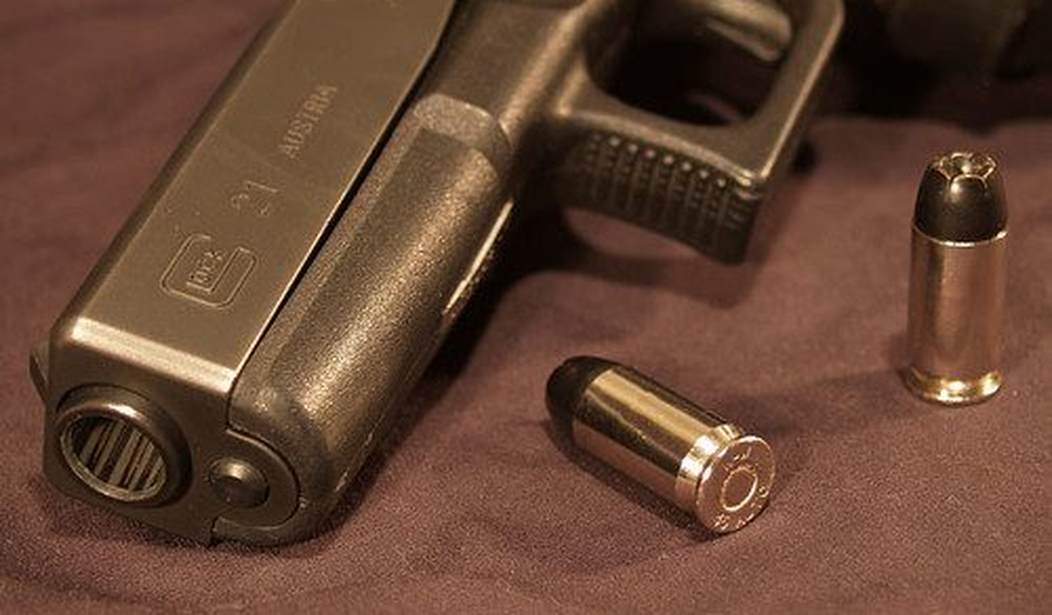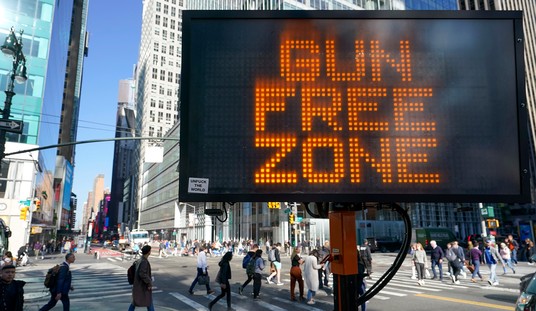One of the more popular gun control laws out there with those who think of the Constitution as an obstacle rather than a set of rules the government must follow is the red flag law.
The idea seems simple enough: You take guns from people who might represent a threat to themselves or others, then they can’t use a gun to hurt themself or others.
These got really popular in the wake of Parkland when it seemed so clear that the killer was a problem that needed to be addressed.
Yet red flag laws have serious concerns. For one thing, there’s the due process issue–you’re stripping someone of their constitutionally protected right to keep and bear arms without giving them their chance in court, even if just temporarily.
Then you’ve got the fact that dangerous people are still dangerous without a gun, yet red flag laws don’t do anything to mitigate the risks other than taking a gun from them.
That’s it.
In Pennsylvania, however, they’re trying to pass a red flag law, saying it’s basically the answer to their gun control prayers.
Ahead of the legislative session this fall, Pennsylvania Democratic senators are calling on their Republican counterparts to support Extreme Risk Protection Orders, which are designed to keep firearms out of the hands of people who might harm themselves or others.
A ‘red flag law’ allows loved ones or law enforcement to request an extreme risk protection order. If a judge decides that person is at risk of committing violence, law enforcement temporarily removes their firearms from their home for one year, with options to petition for an earlier release.
Such a policy could prevent mass shootings like the one that killed five people and injured two over the Fourth of July weekend, said Philadelphia District Attorney Larry Krasner at a Wednesday press conference.
…
A Pennsylvania red flag law could potentially be used to reduce community gun violence as well, Wintemute said. For example, if a parent notices their child posting about shooting someone on social media and believes they have a firearm, they may be able to request assistance from law enforcement under an Extreme Risk Protection Order law.
Wintemute also wonders if community-based violence interrupters who mediate disputes between potential shooters could make use of an extreme risk protection order while providing other kinds of social support.
“We’ve got a specially trained person who’s going to come in and try and mediate the crisis in order to reduce the risk of somebody dying soon,” he said. “But what if there were also at least the option to get the guns out of the situation?”
I’m sorry, what?
If you’re a parent and you notice your child threatening to shoot someone on social media, you’d better do more than get a red flag order. This is your child, for crying out loud. You’d damn well better do more than get a red flag order.
You’d better tear that kid’s bedroom apart, take the gun, and snatch whatever device they’re using for social media from them.
Look, I get the arguments for red flag laws. I really and truly do. The problem is that people often connect the red flags with a mass shooting after it happens. Beforehand, they often don’t even recognize there’s a problem. If they did, there is the 5150 law that can detain someone for up to 72 hours for a mental health evaluation–and anyone who wants to commit a mass shooting has some kind of mental health issue, even if it’s unidentified.
Yet Philadelphia isn’t plagued by mass shootings. It’s plagued by more pedestrian shootings–and no, kids aren’t generally posting threats to shoot people where their parents can see it, as a general rule.
See, the problem here is that red flag laws are now being misrepresented as a cure-all for gun violence as a whole, rather than the potential solution to a subset of that issue.
Of course, when those results don’t materialize, they’ll pretend it’s just not an issue and move on to the next big of gun control on their agenda.
They won’t revisit red flag laws. They won’t say, “You know what? This didn’t work. Let’s walk this back and try something else.”
It might be a little easier for some to consider compromise if that were the case, but it never is, and red flag laws will be no different.








